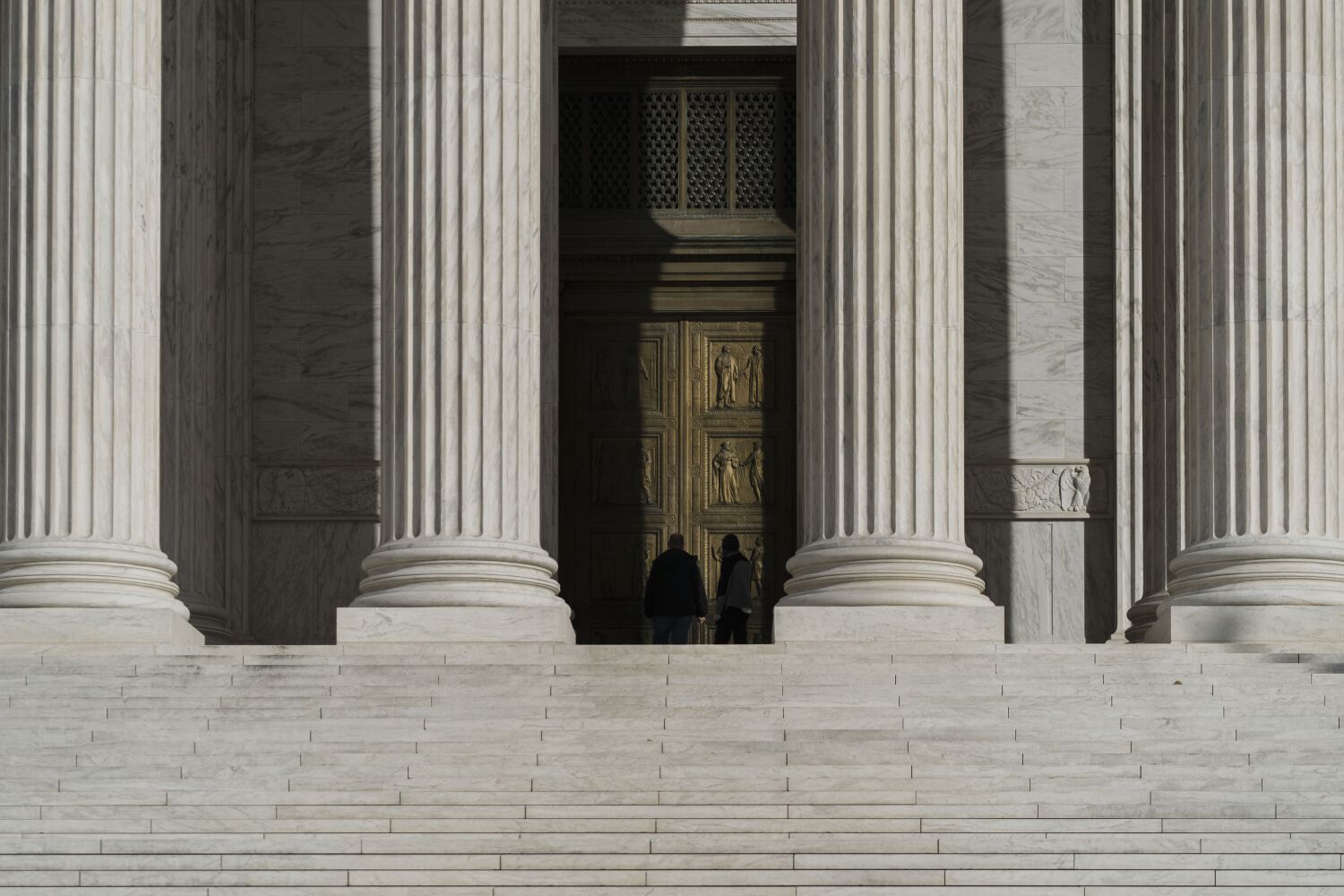[ad_1]

The Supreme Courtroom agreed Friday to rule on extending federal civil rights regulation to guard staff who search to take day without work for non secular observances.
The justices voted to listen to an attraction from an evangelical Christian and former postal employee who was disciplined and finally give up as a result of he refused to ship packages on Sundays.
His case highlighted a long-standing dispute over whether or not employers should “moderately accommodate” an worker’s non secular observance or if they might refuse if accommodating it poses even a minor hardship for his or her enterprise.
Within the case of former postal employee Gerald Groff, his supervisors mentioned it was laborious to seek out different workers who might cowl the Sunday Amazon deliveries in his rural group close to Lancaster, Pa.
He sued, alleging non secular discrimination, however misplaced earlier than a federal decide and in a 2-1 choice by the third Circuit Courtroom in Philadelphia, which agreed the employer confronted a hardship.
However the Supreme Courtroom’s conservatives have signaled they’re ready to rethink the regulation on this space and reverse what they see as a incorrect flip taken within the Nineteen Seventies. They mentioned they agreed with the main liberals of that period — Justices Thurgood Marshall and William J. Brennan — who faulted the bulk on the time as having made a “ mockery” of Congress’ safety of spiritual liberty within the office.
The court docket mentioned it could hear arguments in April in the case of Groff vs. DeJoy and challenge a ruling by late June.
The case might convey collectively the liberal and conservative justices. A ruling on the difficulty would cowl different features of spiritual observance, together with sporting scarves, turbans or beards on the job. Attorneys representing Sikhs, Muslims, Jews and Seventh-day Adventists have joined in help of the attraction and urged the court docket to revive sturdy safety for non secular liberty.
The authorized dispute isn’t over the first Modification’s safety for the “free train of faith,” however somewhat about staff’ rights.
The Civil Rights Act of 1964 prohibited private and non-private employers from discriminating based mostly on race, faith, intercourse or nationwide origin. In 1972, Congress prolonged this safety to “all features of spiritual observance and follow, in addition to perception.”
A employee’s declare of discrimination ought to prevail, the regulation mentioned, “except an employer demonstrates that he’s unable to moderately accommodate to an worker’s or potential worker’s non secular observance or follow with out undue hardship on the conduct of the employer’s enterprise.”
In its first main ruling on this provision, nevertheless, the excessive court docket watered it down in 1977 by saying the regulation didn’t tilt in favor of faith or put burdens on employers. They weren’t required to shift the work schedules of “some workers to be able to allow others to watch their Sabbath,” the justices dominated in TWA vs. Hardison.
In that case, Larry Hardison was a TWA upkeep division clerk in Kansas Metropolis, Mo. He was a member of the Worldwide Church of God and refused to work on the Saturday Sabbath, however was prepared to work in a single day shifts and at different odd instances. Nonetheless, each his union and the airline objected to requiring others to work in his place on Saturdays, and he was fired.
“To require TWA to bear greater than a de minimis value to be able to give Hardison Saturdays off is an undue hardship,” the court docket mentioned in a 7-2 choice.
“At present’s result’s insupportable,” Marshall wrote in dissent, “for the court docket adopts the very place that Congress expressly rejected in 1972,” leaving workers with “the merciless selection of surrendering their faith or their job.”

